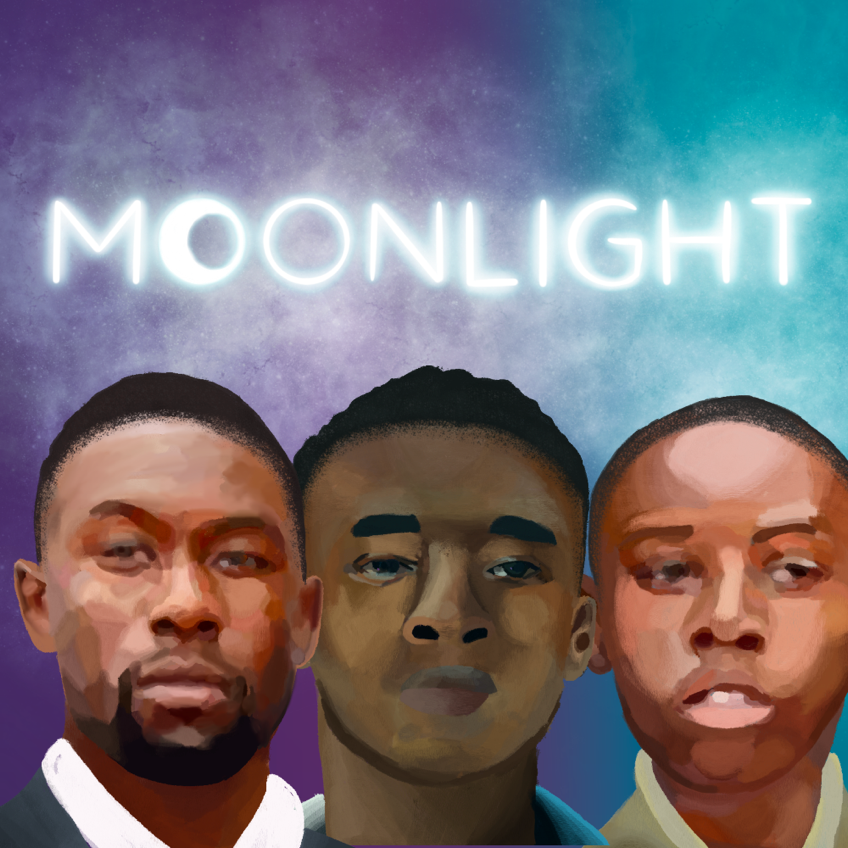Please visit response.fsu.edu for official FSU updates and resources.
Moonlight, the blueprint for modern coming-of-age movies everywhere
 When Moonlight won the Oscar for best picture in 2016, it came as a shock, not because the film wasn’t of sufficient quality, but because it didn’t fit in with the kinds of films that are usually selected. Even so, it became the first film with an all-Black cast and the first LGBTQ+ related film to win the award. This was and still is a remarkable feat for everyone involved with the project, including multiple FSU alumni like Director Berry Jenkins, who graduated in 2004. From the first time I saw Moonlight, I knew it was a special movie. It’s an emotionally impactful film that voices the experiences of groups who have been excluded from the Hollywood film industry for far too long. This low-budget A24 production is a Cinderella-story and a landmark for coming-of-age films made by minorities. The film has already paved the way for diverse and inclusive films of similar styles.
When Moonlight won the Oscar for best picture in 2016, it came as a shock, not because the film wasn’t of sufficient quality, but because it didn’t fit in with the kinds of films that are usually selected. Even so, it became the first film with an all-Black cast and the first LGBTQ+ related film to win the award. This was and still is a remarkable feat for everyone involved with the project, including multiple FSU alumni like Director Berry Jenkins, who graduated in 2004. From the first time I saw Moonlight, I knew it was a special movie. It’s an emotionally impactful film that voices the experiences of groups who have been excluded from the Hollywood film industry for far too long. This low-budget A24 production is a Cinderella-story and a landmark for coming-of-age films made by minorities. The film has already paved the way for diverse and inclusive films of similar styles.
Moonlight follows the compelling story of a young, Black, gay man, named Chiron, raised in the housing projects of Miami as he journeys from youth to adulthood. The film does so in a three-act structure, with each act titled for what people call the main character when the act takes place. He is “Little” during his childhood, “Chiron” during his teenage years, and “Black” as an adult. The character is at three vastly different stages of life in each act: first, a little boy living with a drug-addict mother and absent father, then a quiet teenager struggling with bullying and his sexuality, and finally, a full-grown drug-dealer, emotionally detached and unable to love due to his traumatic past. Even though each act has a different actor playing Chiron, they all carry the essence of the character as Chiron ages and develops incredibly well.
One of the things I love most about the film is how the various side characters in Chiron’s life influence him and play such an important role in his life. The actors in these roles are amazing and each one contributes enormously to Chiron becoming the man we see by the end of the third act. Firstly, charismatic Cuban-American crack dealer, Juan (Mahershala Ali), becomes a father-figure for young Chiron and is one of the only people in his life to support and care for him. Then you have his drug-addict mother, Paula (Naomie Harris), whose addiction prevents her from being a nurturing or responsible mother, often neglecting Chiron and leaving him to fend for himself. And lastly, we have his childhood friend, Kevin (played by multiple actors), who arguably has the greatest impact on Chiron. Their long-time childhood friendship culminates in a homosexual encounter as teenagers, after which Kevin shuns, rejects, and physically abuses Chiron because of his own insecurity. All of these people influenced Chiron in different ways and show the complexity of the relationships that many minorities and members of the LGBTQ+ community often experience. Showing the nuances of these relationships is important because it breaks down the stereotypes and generalizations that these groups have traditionally been portrayed as in mainstream media.
One thing should be made clear, however. By no means is the recognition of Moonlight solely due to its connections to the Black and LGBTQ+ Communities. The film is well worth the praise, independently of the way it resonates with these marginalized groups. Everything about the film from the acting, editing, cinematography, and music to the directing is simply outstanding. We see this in the way the film creates an entire world of experiences, transporting you into Chiron’s life and making you feel as if you were right there alongside him. But for all the filmmaking mastery on display in Moonlight, it’s a subtle film, not a showy one. What really makes this movie stand out is the way it magnificently paints Chiron’s life story and relates it to how our experiences, relationships, and environments shape who we are.
Moonlight is a film that will not only stand the test of time as one of the best films of the 2010s, but will be remembered forever as a breakthrough for LGBTQ+ and Black filmmakers being able to voice their experiences, tell their stories, and receive the recognition that they deserve. What makes Moonlight so remarkable and important, in my opinion, is that you do not have to be a member of the Black or LGBTQ+ community to understand the film or empathize with the characters. The film is an emotional gateway that allows you to view life from a different perspective and see the humanity in others. It emphasizes the fact that even though we are all different, we all have our own trials and tribulations that make us who we are. So in that sense, Moonlight is a movie for everyone and an amazing one at that. If you want to experience the Oscar-winning masterpiece again, or for the very first time, be sure to go to the Student Life Cinema on April 1st when ASLC shows it. Hope to see you there!
Written by: Bryan Herrera | Instagram
Art by: Mikael Byrd | Instagram



